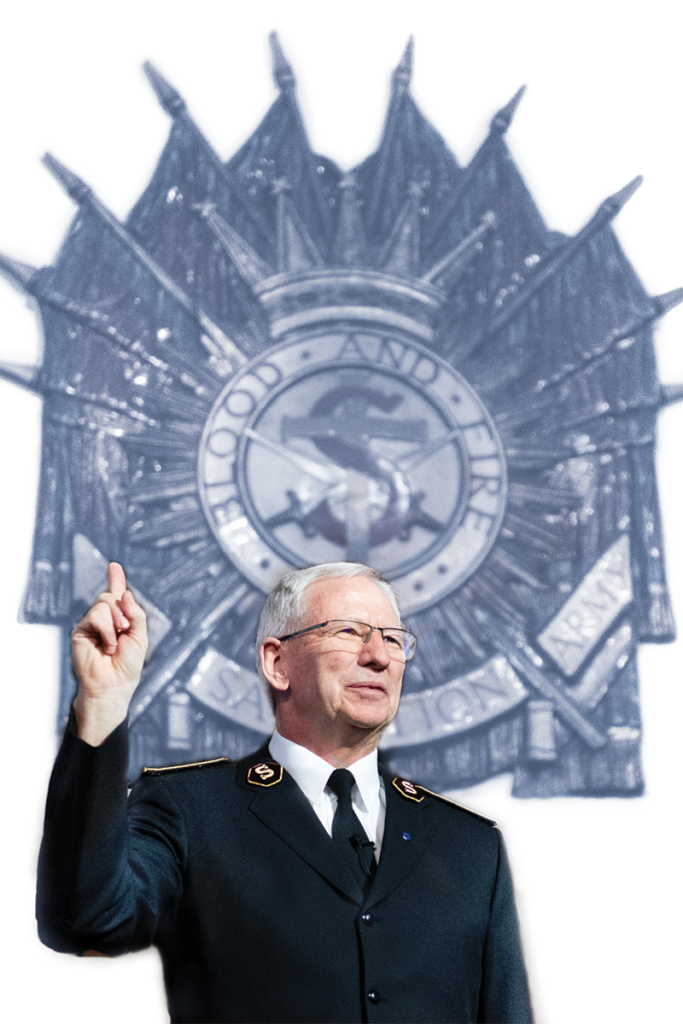How a General is Elected
“May God bless our new General!”
On May 18, 2023, the High Council will officially meet at Sunbury Court in London for the purpose of electing a new General. As with every High Council, it will be a deeply spiritual time, as well as a legal requirement, which gives the international leaders of The Salvation Army the opportunity to elect the man or woman of their choice to lead the Army for the next five years. Every active Salvation Army officer is eligible for election.
Generals have been elected by High Councils since 1929. William Booth’s original concept was that Generals would appoint their own successors, and he duly nominated his son Bramwell to succeed him upon his death. General Bramwell Booth led the Army from 1912 to 1929, but as a result of a constitutional crisis in that year, it was established that future Generals would be elected.
The new international leader will be the Army’s 22nd General. Two previous Generals have been Americans, General Evangeline Booth (1934-39) and General Paul A. Rader (1994-99).
Preliminaries
After electing a President to guide its deliberations, the first task of the High Council will be to decide how it will work. The Council will review the procedures arrived at by the previous High Council, will make any amendments it feels necessary, and will then formally adopt its own Orders of Procedure.
A High Council is an exercise of spiritual discernment, and time is therefore set aside for worship, reflection and prayer. The collective prayer of the members will be that at the end of the process they might be able to echo the words of the Council of Jerusalem: “It seemed good to the Holy Spirit and to us” (Acts 15:28 nkjv).
Time is also set aside for discussions about the challenges and opportunities that the Army faces around the world. The next General will have to clarify the kind of leader the Army needs.
Nominations
The High Council then moves to the nomination stage. Every member has the privilege of nominating someone to be a candidate for General. The only criterion laid down is that the person nominated must be an officer. That means that about 16,000 persons are eligible to be nominated. But on past precedent the forthcoming High Council is likely to nominate persons from within its own membership.
Only those who are nominated by three or more members are deemed to have been nominated. Those who accept nomination become candidates–and it is from this panel of candidates that the High Council will be called to elect the next General.
At this stage, the High Council adjourns for a full day to enable the candidates and spouses to prepare written answers to the respective questionnaires that the Council has prepared. Candidates also work on their speeches.
Questions & Speeches
When the Council begins its deliberations again, candidates and spouses read out their answers to the questions. Through the process of questions and answers the High Council seeks to get to know the candidates at greater depth, and to learn more about their leadership style, their personalities and their views on subjects related to the Army and its ministry.
Each candidate then gives a speech. No parameters regarding subject matter or length are laid down but speeches usually deal with the candidate’s vision for the Army if elected General and last between 10 to 15 minutes.
Election
After the questions and speeches, the election itself begins. In the hush of the council chamber, each member in turn receives a voting paper from the President and in a secluded area places a check against one of the names on the paper before putting it in a ballot box. The other members engage in prayer. The process is unhurried and can take up to an hour for each ballot.
After the voting has been completed the tellers count the votes. The British parliamentary Salvation Army Act 1980–by which the High Council is governed–stipulates, A.) that in the first three ballots a candidate must get the vote of more than two thirds of the members present to be elected, B.) that from the fourth ballot onwards a candidate need only receive the votes of more than half of the members present, and C.) that the candidate who gets the fewest votes in each ballot must drop out until only two candidates remain. The balloting continues until one of the candidates reaches the required number of votes.
Closing Moments
What happens next is of the greatest significance. However protracted the election process and however close the result, it is in the tradition of High Councils that the moment the new General is elected all members immediately give their full support to that person.
Any differences of opinion there might have been before that time are swept away and the corporate decision of the body is accepted by all as the expression of the will of God. Then comes the moment when the doors of the council chamber are thrown open and, in a ceremony that is webcast, the President presents the new General to the Salvationist family around the world. From every heart rises the cry: “May God bless our new General!”







